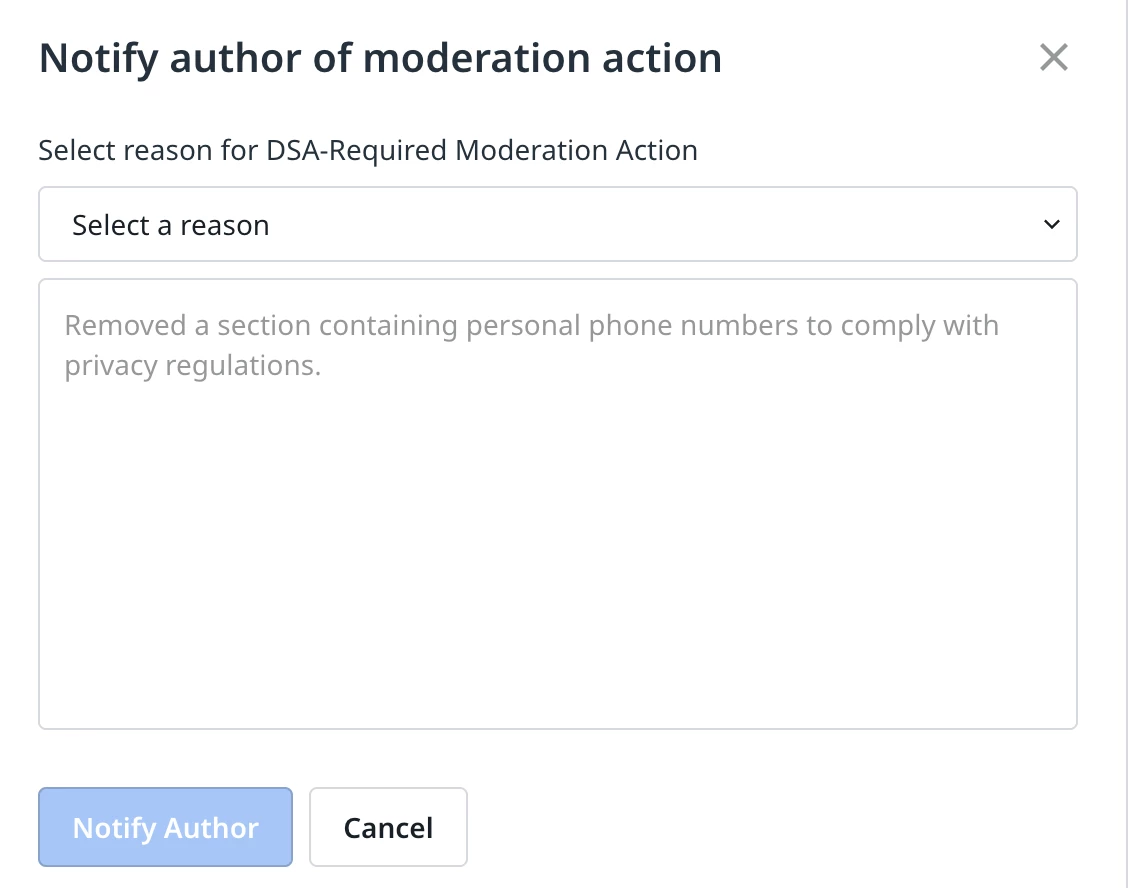This article helps the community admins comply with the Digital Services Act (DSA) by notifying content authors when their posts or replies are moderated.
Overview
To comply with the Digital Services Act (DSA), community admins are required to notify authors promptly and clearly when posts or replies are moderated. The Notify Author feature enables admins to inform content authors when their posts are edited or removed, along with providing the specific reason for the action.
This ensures transparency and helps maintain trust within the community by clearly communicating the basis for moderation.
For more information on the Digital Services Act (DSA), refer to Best Practices for Navigating the Digital Services Act (DSA).
The Notify Author feature is available in posts and replies in Control to send notifications to authors.
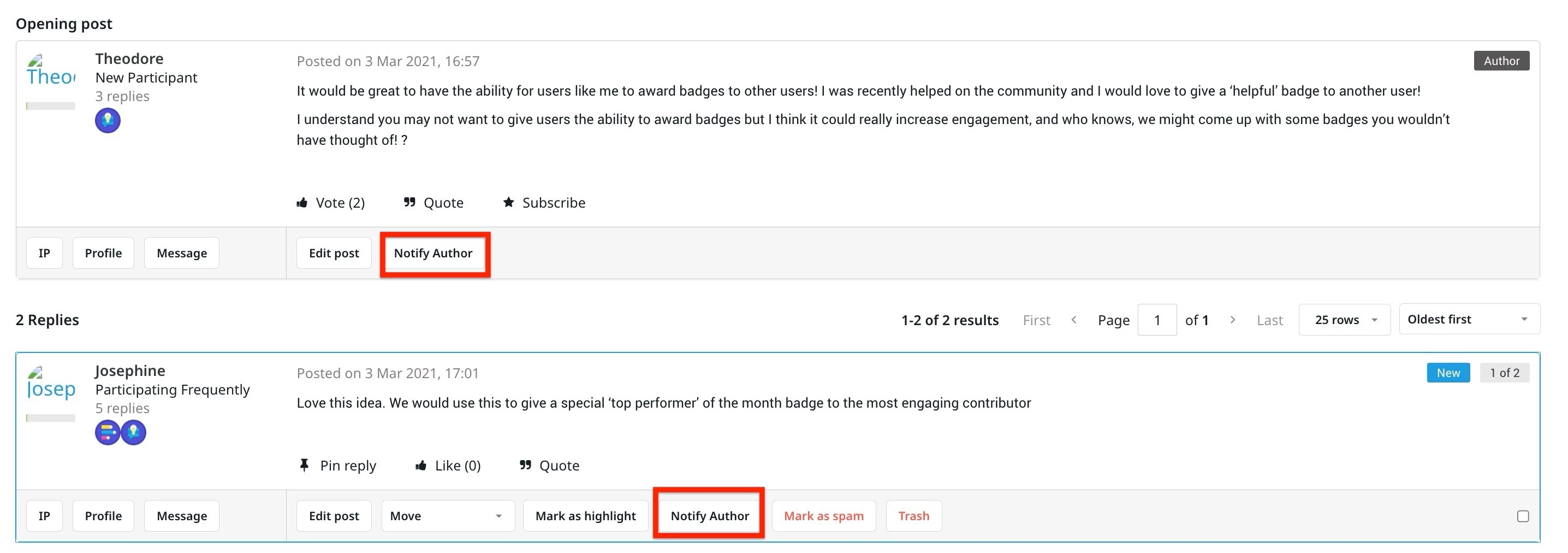
Configure Notification Email System
For the Notify Author to work, admins must configure the DSA moderation email. This setup only needs to be done once.
Note: Only the Community admins can access the System Email setup page.
To configure the email:
- Navigate to Email > System Emails.
- Scroll down to DSA Moderation, and click Edit. The Edit 'DSA Moderation' email page appears.
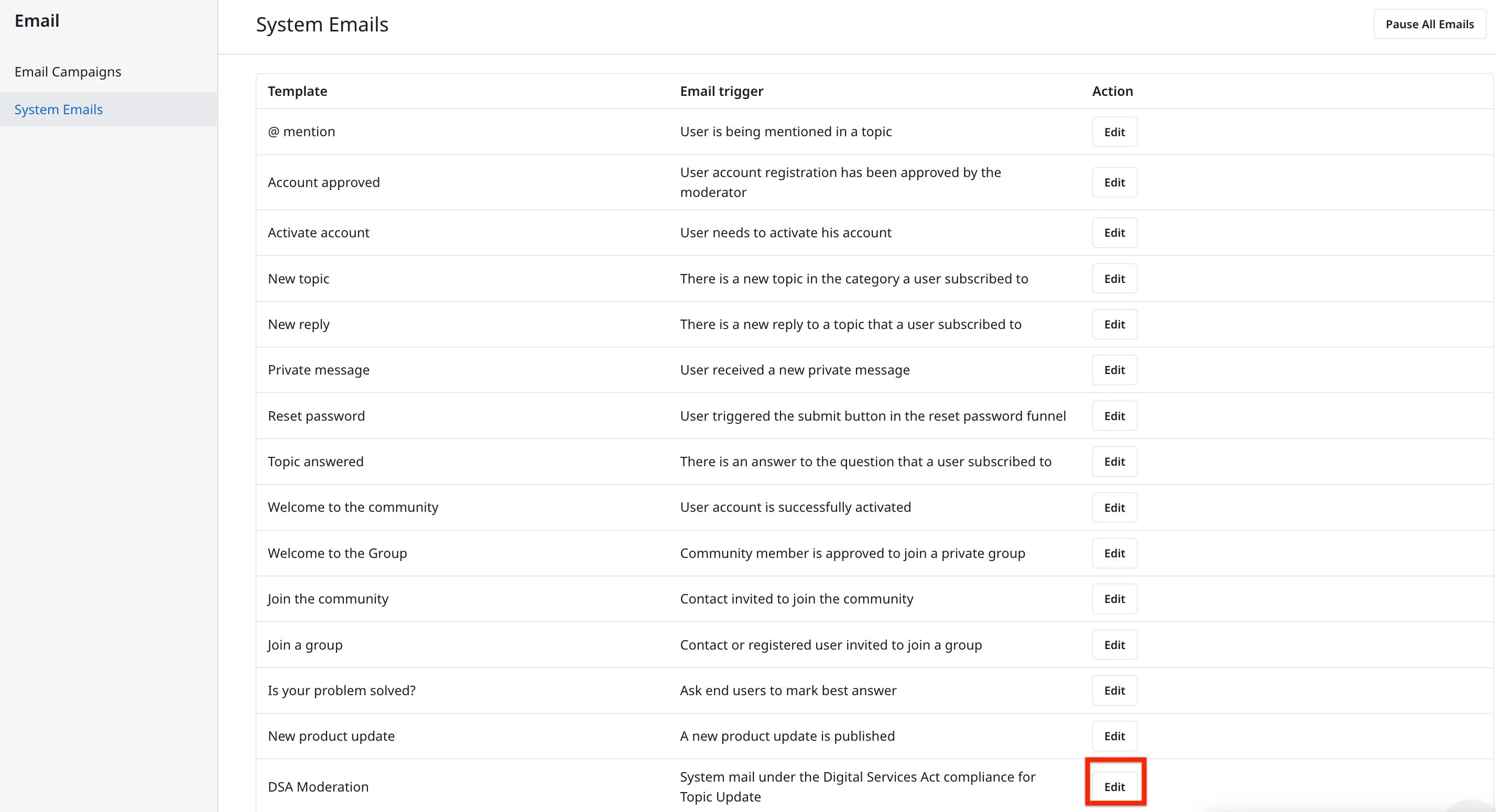
- Set up or verify the email and click Save Changes. Once saved, navigate to the moderation page.
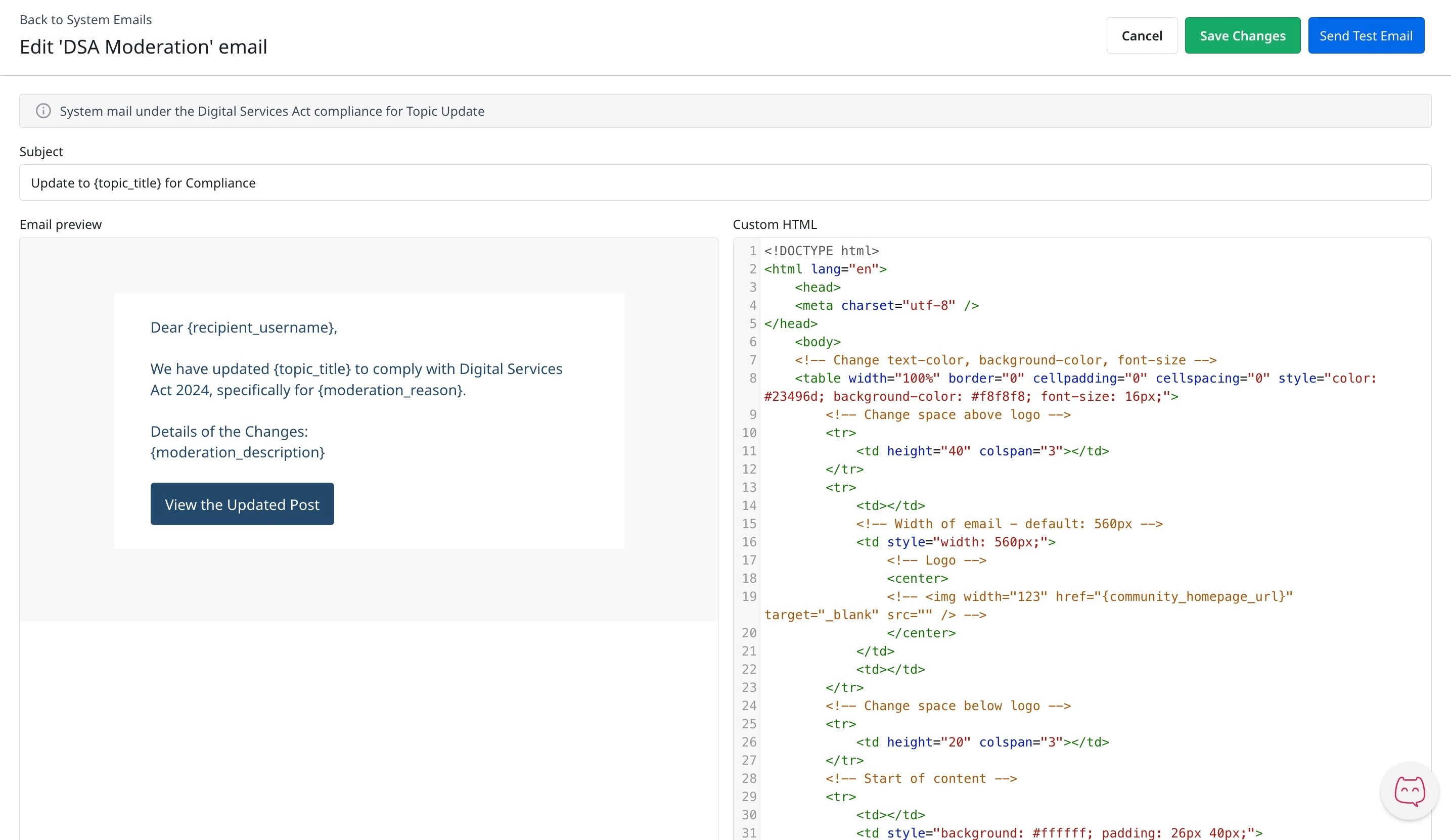
Access the Topic Moderation Page
Admins can notify the authors from the Topic moderation page in Control. To access the moderation page:
- Log in to Control.
- Navigate to Content > Moderation.
- From the available list, select the Topic for modification.
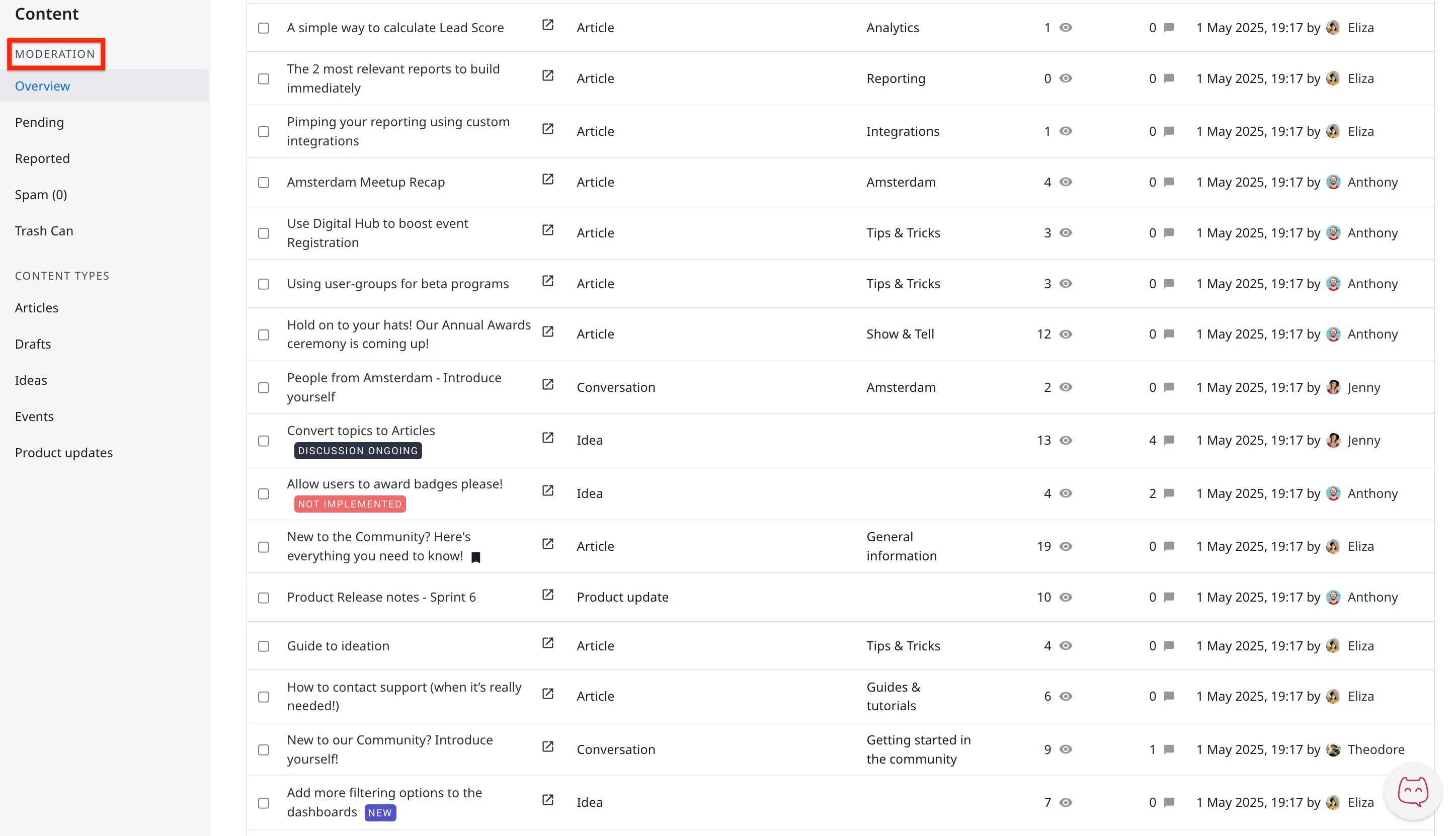
Notify Authors of Moderation Actions
After the email is configured, moderators can now notify authors of moderation done to their posts.
Note:
- If the admin has not configured the DSA moderation email, the first time you click Notify Author, you are prompted to set up the system email.
- Only the Community admins can access the System Email setup page.
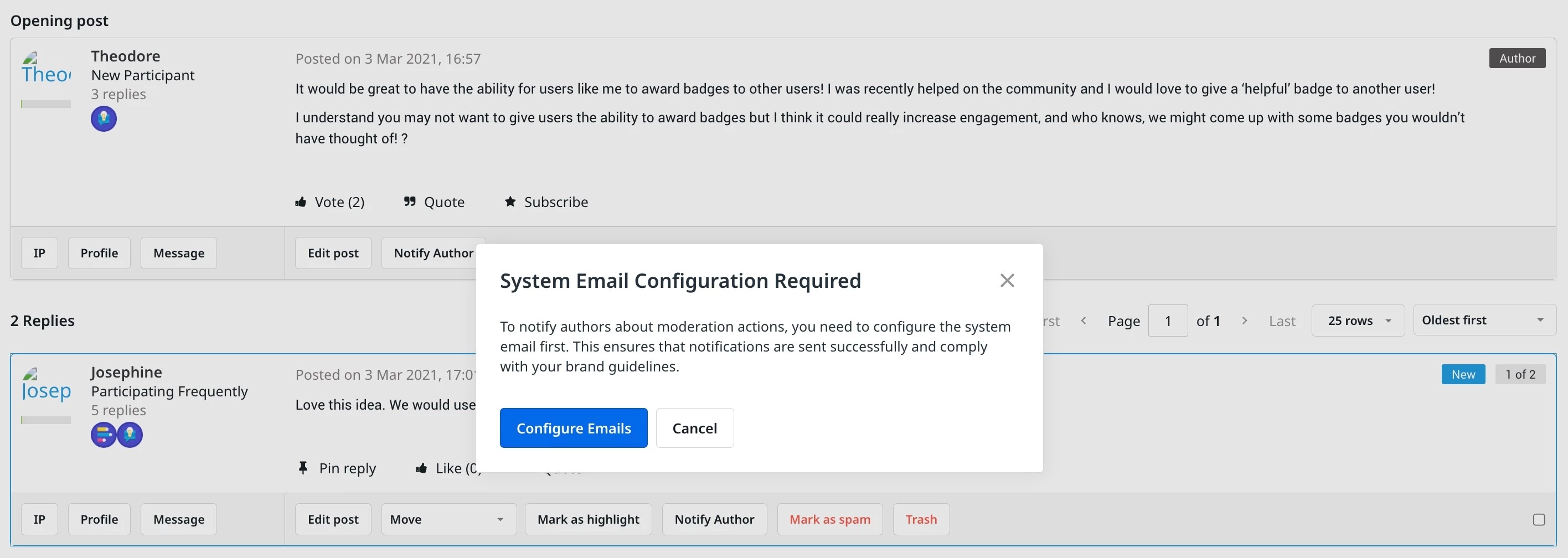
To notify authors:
- Click Notify Author. The Notify author of moderation action dialog appears.
- From the Reason dropdown, select one of the reasons provided:
- Privacy Violation
- Illegal Content
- Platform Policy Violations
- Misinformation
- Minor Protection
- Harmful Content
- Copyright or Intellectual Property Infringement
- Impersonation or Fake Accounts
- Transparency and Reporting Requirements
- Violations concerning consumer information
- Based on the reason selected, a pre-populated explanation is provided. Edit the explanation if required.
- Click Notify Author to send the email.
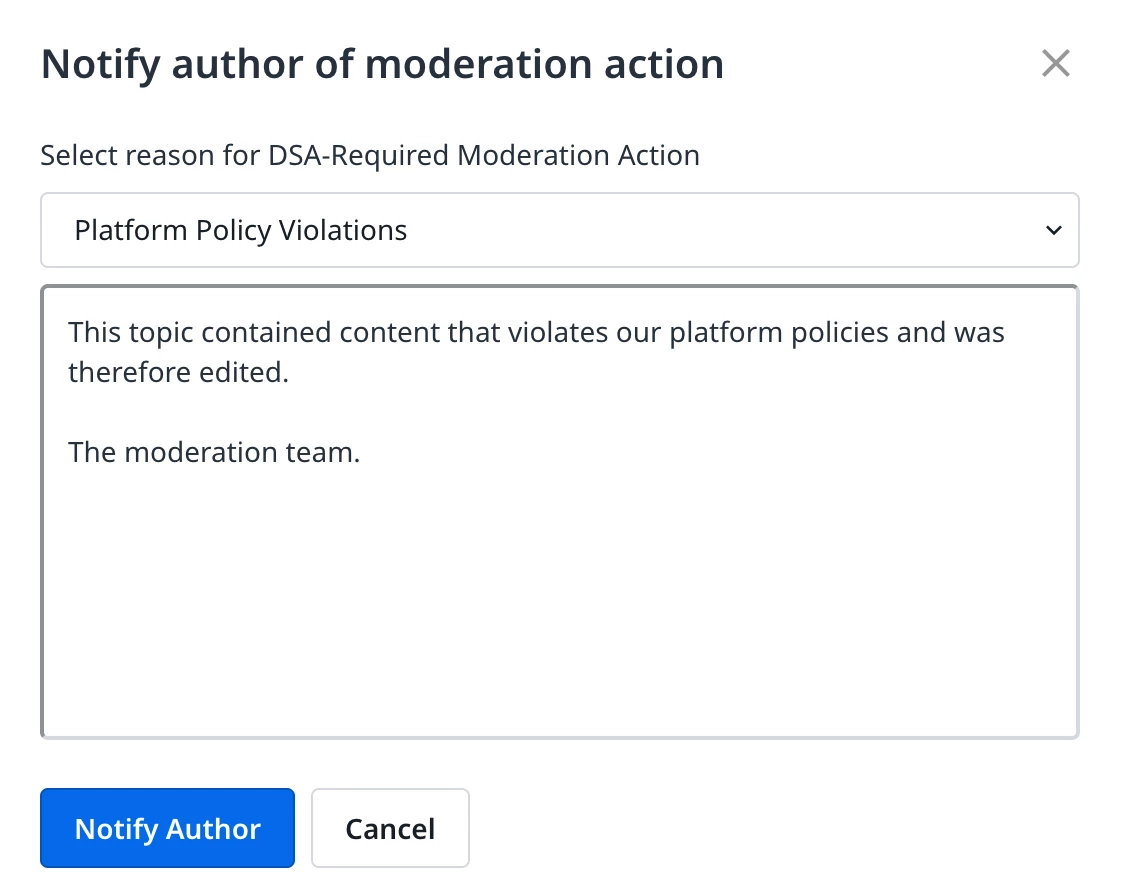
Note:
- A maximum of 1000 characters can be entered in the explanation field.
- The default language of the community is used for the explanation.
DSA Reasons and Descriptions
The DSA reason and descriptions can be modified from the Phrases page in Control using the following custom phrases:
Reasons
| Module | Key | Default Translation (Reason) |
|---|---|---|
| Control | dsareason.privacy_violation | Privacy Violation |
| Control | dsareason.illegal_content | Illegal Content |
| Control | dsareason.policy_violation | Platform Policy Violations |
| Control | dsareason.misinformation | Misinformation |
| Control | dsareason.minor_protection | Minor Protection |
| Control | dsareason.harmful_content | Harmful Content |
| Control | dsareason.ip_infringement | Copyright or Intellectual Property Infringement |
| Control | dsareason.impersonation | Impersonation or Fake Accounts |
| Control | dsareason.transparency_reporting | Transparency and Reporting Requirements |
| Control | dsareason.consumer_information | Violations Concerning Consumer Information |
Descriptions
| Module | Key | Translation |
|---|---|---|
| Control | dsadescription.privacy_violation | Privacy violation occurs when an individual’s personal information is accessed, used, or disclosed without consent, leading to potential harm, embarrassment, or unauthorized surveillance. It breaches legal and ethical boundaries. |
| Control | dsadescription.illegal_content | Illegal content refers to materials, posing legal risks and can harm individuals or society. |
| Control | dsadescription.policy_violation | Platform policy violations occur when users breach guidelines set by online platforms, such as community standards or terms of service, leading to content removal, account suspension, or other penalties. |
| Control | dsadescription.misinformation | Misinformation refers to inaccurate or false information spread unintentionally. It can mislead individuals, distort public understanding, and impact decision-making, often proliferating through social media and other communication channels. |
| Control | dsadescription.minor_protection | Minor protection refers to laws and measures aimed at safeguarding children and adolescents from harm, exploitation, and abuse, ensuring their safety and well-being in various environments, including online. |
| Control | dsadescription.harmful_content | Harmful content refers to material that can cause physical, emotional, or psychological harm, including graphic violence, self-harm instructions, or hate speech, posing risks to individuals and communities. |
| Control | dsadescription.ip_infringement | Copyright or intellectual property infringement occurs when someone uses protected works without permission, violating the rights of creators and potentially leading to legal consequences and loss of revenue. |
| Control | dsadescription.impersonation | Impersonation or fake accounts involve individuals creating profiles that misrepresent themselves, often for deceitful purposes, such as fraud or harassment, undermining trust and safety on online platforms. |
| Control | dsadescription.transparency_reporting | Transparency and reporting requirements mandate organizations to disclose information about their practices, policies, and operations, ensuring accountability and enabling stakeholders to understand their actions and impact. |
| Control | dsadescription.consumer_information | Violations concerning consumer information involve misleading claims or false advertising that distort product features or benefits, resulting in consumer deception and potential legal repercussions for businesses. |



